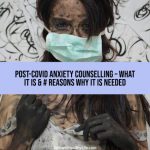
Most of us visit the dentist twice a year for our cleaning. We also get our oil changed regularly to make sure our vehicles continue to run smoothly. But how many of us remember to go get eye exams every year?
As we get older, we may not notice a slow decline in our vision. Just because we think our vision is fine, doesn’t mean it actually is.
What are some common eye diseases?
In the intricate realm of ocular health, understanding common eye diseases is pivotal for professionals navigating patient care.
1. Cataracts
Cataracts, the clouding of the eye’s lens, often accompany aging. Surgical intervention, removing the cloudy lens and replacing it with an artificial one, is a standard treatment.
2. Glaucoma
Glaucoma, characterized by increased intraocular pressure, can lead to optic nerve damage and vision loss. Timely diagnosis and pressure management are key in mitigating its impact.
3. Age-Related Macular Degeneration (AMD)
AMD affects the macula, impacting central vision. Both dry and wet forms exist, with treatment strategies varying, including anti-VEGF injections for wet AMD.
4. Diabetic Retinopathy
In diabetic retinopathy, high blood sugar damages retinal blood vessels, potentially causing blindness. Early detection, lifestyle management, and laser treatments are crucial in preventing progression.
5. Retinal Detachment
A serious condition where the retina pulls away from its normal position, retinal detachment requires prompt surgery to prevent permanent vision loss.
6. Dry Eye Syndrome
More prevalent in the digital age, dry eye syndrome results from inadequate tear production. Management includes artificial tears, lifestyle adjustments, and sometimes prescription medications.
7. Conjunctivitis (Pink Eye)
Whether viral, bacterial, or allergic, conjunctivitis causes eye redness and discomfort. Treatment depends on the type and may include antibiotics or antihistamines.
8. Refractive Errors (Myopia, Hyperopia, Astigmatism)
While not diseases per se, refractive errors like myopia, hyperopia, and astigmatism affect vision. Corrective measures include glasses, contact lenses, or surgical interventions like LASIK.
Understanding these common eye diseases equips professionals to offer targeted care, emphasizing early detection, tailored treatments, and patient education for optimal ocular health.
Are Yearly Eye Exams Really Needed?
Absolutely! Yearly eye exams are crucial for maintaining optimal eye health. These exams detect early signs of conditions like glaucoma, cataracts, and macular degeneration, preventing potential vision loss.
They also ensure timely prescription updates, addressing changing visual needs. Regular eye exams are not just a routine; they are proactive steps toward preserving clear vision and identifying potential issues before they become serious.
Regular eye exams can help preserve your overall eye health, as well as provide a method of detection of other issues that can be related to your eyes besides just vision that you were unaware of.
Vision Correction Can Help In Many Ways

Vision issues can interfere with putting your best foot forward in sports or school, which not only affects your coordination which can lead to injury but can also contribute to reading and learning difficulties in school. Or, in some cases, your productivity at work might be affected without you even noticing.
Minor vision correction can help to reduce headaches or general eye fatigue which left untreated, can make those work days feel like more of a task, and difficult to get through than they really should be.
Many Serious Eye Diseases Often Show No Symptoms
Glaucoma is a condition that causes damage to your eye’s optic nerve, which gets worse over time and can begin to develop with no noticeable symptoms. Though most types of glaucoma cannot be prevented, early detection is vital to limit the loss of vision caused by the disease.
Conditions such as macular degeneration or the early stages of cataracts develop so gradually that you may not even realize your vision has been affected. Early detection of these and other eye diseases is important for maintaining healthy vision and enjoying a healthy life.
(See also: [Eye Health] How To Keep Yourself From Seeing An Eye Center)
Eye Exams Can Detect Serious Medical Conditions

Most of us have heard or read the quote “The eyes are the window to your soul”, but did you know that your eyes can actually be the windows to your health?
The back of the eye, or the retina, is the only place that gives doctors an up-close view of your nerves and blood vessels without you needing to be cut open. This fact alone makes an annual eye exam very useful for detecting any important medical issues that may have continued to go unnoticed for months or even years.
Your eye exam might literally save your life as doctors have been able to discover cancer, brain tumors, diabetes, high blood pressure, multiple sclerosis, and more before the patient had any symptoms to alert themselves.
Lifestyle Improvements
If you put on your glasses every morning at the start of the day, you probably know that they can sometimes have their limitations. For instance (depending on your geographical location and interests), glasses can become a little inconvenient when it comes to aquatic activities or playing sports.
You might not even be aware of how limited, or how much they interfere with your ability to participate in activities you enjoy. Scheduling your eye exam might present some other alternatives that can open up a whole new world of possibilities for you, such as getting fitted for contacts or even a comfortable pair of sports glasses.
Look And Feel Your Best
Have you been wearing the same frames for the past few years? Decade maybe?
Sometimes this can have an effect on your self-consciousness, so buying some new eyeglasses and frames can go a long way with how you feel about yourself and the way you present yourself to the outside world.
Another problem is that maybe those old frames that no longer sit evenly have started to cause a variety of problems that have gone unnoticed – pressure spots, headaches, vertigo, and more. Or, maybe you’re just tired of wearing glasses! A good eye exam will determine if contact lenses or other options would be a good solution for you.
(See also: A Simple Guide to Select Glasses Online)
Safety For Yourself And Others
Being able to see properly is vital to keeping you and those around you safe. When getting behind the wheel of a vehicle, you owe it to yourself and the other drivers and pedestrians to have the most important means of alarming yourself of potential problems and dangers functioning properly.
About The Author:
Ryan Knaak has been writing content for clients for over 7 years covering a wide spectrum of industries. He specializes in writing articles for businesses that want to see their search rankings improve. His articles focus on balancing information with SEO needs, but never at the expense of providing useful information.




